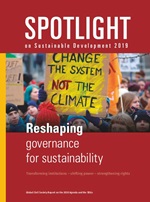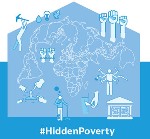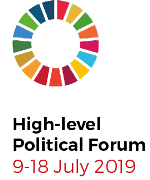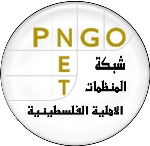Social Watch news
Published on Mon, 2019-09-02 14:57
The right to food is a priority at the global level, and especially in the Arab region where countries with heightened armed conflicts as Syria, Yemen, Iraq and Palestine suffer from severe malnutrition. And yet, conflicts are not the only reason behind the deterioration in the food situation, because it is primarily due to the social and economic policies adopted, as well as climate change and change in production and consumption patterns. In fact, these policies have had a significant impact on small producers and rural populations.
To better understand the setbacks for the right to food, the Arab Watch Report 2019 raises these concerns through 10 national and six regional papers, which all adopt an all-encompassing approach to the right to food and its aspects.
|
Published on Wed, 2019-08-28 16:42
Over a hundred Heads of State or Government are expected to arrive to New York in the last week of September for a series of back-to-back summit meetings at the opening of the General Assembly of the United Nations. On top of the usual photo opportunities and a myriad of bilateral meetings between leaders, this High-level week provides an opportunity for multilateral action to shift away from ‘business as usual’ and address some enormous current challenges.
|
Published on Fri, 2019-08-02 14:55
Speaking at the OECD last May, Ambassador David Donoghue, former UN Co-facilitator of the 2030 Agenda, said: “Much is being emphasized about the synergies between the different SDGs, and rightly so, but not much attention is paid to the trade-offs.”
The trade-offs between different priorities competing for scarce budget resources, for the limited attention of policy-makers or the interest of the media rarely emerge in the official debates, but they are permanently highlighted by the independent reports of civil society on implementation of the 2030 Agenda ... or lack of it.
|
Published on Fri, 2019-08-02 14:49
The research report, The Hidden Dimensions of Poverty, fundamentally challenges global conceptions of the nature of poverty. This participatory research, led by ATD-Fourth World and the University of Oxford, has sought to refine the understanding and measurement of poverty by engaging with people directly experiencing poverty, practitioners and academics.
The 2030 Agenda recognizes that poverty is multidimensional. However, apart from income poverty, hitherto these dimensions have not been well-specified, several of them have gone unrecognized, and the ways in which they all interact to shape the experience of poverty has not been properly understood.
|
Published on Tue, 2019-07-30 13:49
Since 2016, 142 countries worldwide have submitted Voluntary National Reviews (VNRs) as part of the UN High Level Political Forum (HLPF), reporting on progress made towards achieving the Sustainable Development Goals (SDGs), the action plan of the 2030 Agenda for Sustainable Development. The VNRs play a prominent role in the annual Economic and Social Council (ECOSOC) HLPF with both criticism and acclaim. However, it’s important to consider how VNRs are taking hold beyond the formal sessions in the HLPF every year. The VNRs elucidate gaps in the global indicator framework and are appearing in discussions of UN Country Teams (UNCTs), the UN Statistical Commission and the Committee for Development Policy (CDP).
|
Published on Tue, 2019-07-23 23:39

Photo: Coordinadora ONGD.
|
Every year since the adoption of the 2030 Agenda in 2015, governments are invited to present Voluntary National Reviews (VNRs) on their progress in achieving the Sustainable Development Goals (SDGs) at the High Level Political Forum (HLPF) of the UN. This process is heralded by some as a great opportunity to hold governments accountable to their actions and by others as a beauty contest riddled with misrepresentation and power imbalances. Civil society organizations in many countries produce their own alternative “spotlight reports,” playing with the name of “shadow reports” traditionally given to such independent voices in the Human Rights context.
An event titled “National Reports on 2030 Agenda: What do They (Not) Tell Us?,” jointly hosted by the United Nations Development Program (UNDP), the Committee for Development Policy (CDP), Global Policy Forum (GPF) and Social Watch, explored these tensions and sought to identify opportunities to improve reporting, monitoring, follow-up and accountability in these national review processes.
|
Published on Wed, 2019-07-17 10:37
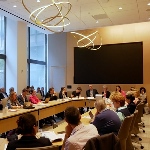
Photo: FES
|
“There needs to be an examination of the hardware of the 2030 Agenda, rather than an upgrade of its software” concludes the 2019 Spotlight Report launched on Thursday, 11 July during the High Level Political Forum that reviews the United Nations 2030 Agenda for sustainable development. The meeting was co-sponsored by Global Policy Watch, United Nations Research Institute for Social Development (UNRISD) and Friedrich-Ebert-Stiftung (FES). Under the title of “Reshaping governance for sustainability”, the civil society report explores transforming institutions, shifting power and strengthening rights. The launch event showcased the ideas presented by a variety of the report’s authors.
|
Published on Tue, 2019-07-16 13:25
In an event in 10 July 2019, Social Watch Philippines (SWP) led a discussion called, “Conversation on Tobacco Control Initiatives, Impact of 17th Congress Tobacco Tax Increase, and Universal Health Care- Implementing Rules and Regulations” where the SWP Spotlight Report for 2019 on the SDGs entitled “The PH SDG Agenda: Closing Gaps, Overcoming Policy Incoherence” and the Philippine VNR were discussed by SWP Co-Convenor Dr. Maria Victoria Raquiza and the National Economic and Development Authority Usec. Rosemarie G. Edillon, PhD respectively. Three years ago, SWP has also made its statement on SDGs, through its Spotlight Report, on overcoming poverty and achieving sustainable development.
|
Published on Mon, 2019-07-15 11:43
PNGO Network, Social Watch member in Palestine, issued a paper entitled “The Impact of Current Situation on Women Protection in the Gaza Strip”
The paper highlights the effect of the protracted crises in the Gaza Strip on women who become shock-absorbers during crisis. Also, it illustrates the key barriers impede the work of national women organizations to intervene in women protection and addresses the required steps from varies parties to achieve women protection in Gaza.
|
Published on Thu, 2019-07-11 18:45
The 2030 Agenda and the SDGs have also captured the attention of many parts of the UN system, which are slowly restructuring their work plans towards their achievement. This fact can be seen in negotiations on UN development system reform and country-level reporting; on the push for a Data Revolution as well as Information and Technology. The VNRs are being analysed by civil society groups as well as the UN Committee on Development Policy to see the extent to which they are focused on leaving no one behind, and tackling the furthest behind first, as well as the extent to which they address trade-offs between the goals and especially spillover effects from global policies that impede their achievement.
|
SUSCRIBE TO OUR NEWSLETTER
Submit

|



